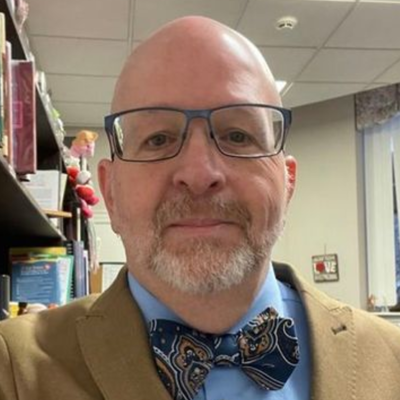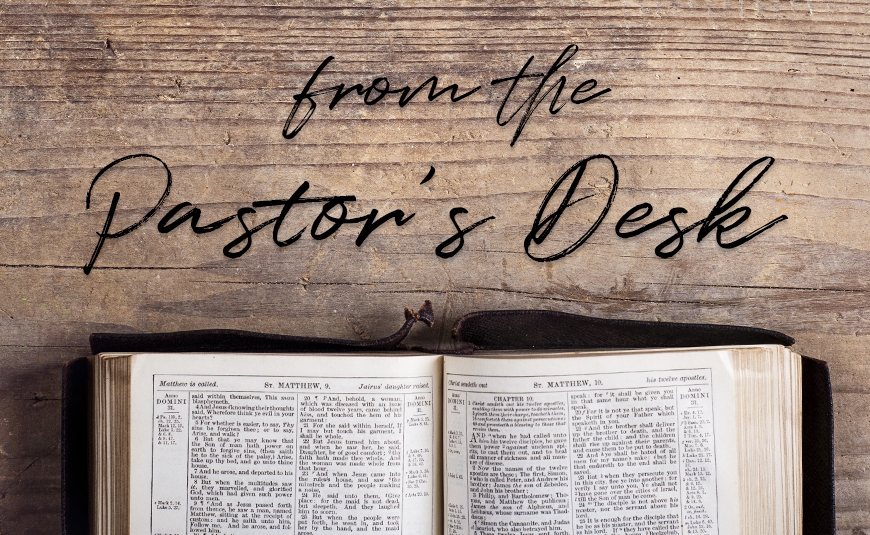Through The Roof Friendship
A few days later, when Jesus again entered Capernaum, the people heard that he had come home. So many gathered that there was no room left, not even outside the door, and he preached the word to them. Some men came, bringing to him a paralytic, carried by four of them. Since they could not get him to Jesus because of the crowd, they made an opening in the roof above Jesus and, after digging through it, lowered the mat the paralyzed man was lying on. When Jesus saw their faith, he said to the paralytic, "Son, your sins are forgiven." (Mark 2:1-4)
In the second chapter of his Gospel, Mark recounts the remarkable story of a severely paralyzed man and his life-changing encounter with Jesus. Mark provides few details about this man or his identity. We’re not told his name, age, or background. We’re not told how he had come to suffer from paralysis or how long he had endured his affliction. All we know is that whatever the source of his illness, it was so severe that it prevented him from going anywhere on his own two legs. He was completely dependent on others to take him where he wanted to go, bring him what he needed, and provide for his daily survival.
Apart from the physical challenges he faced, we can imagine that suffered the same social and emotional pain shared by other chronically ill people in first century Israel. Being disabled, he would’ve been a social outcast, one of those “forgotten” persons no “respectable” person would have anything to do with. Like the man born blind in John 9, people would have assumed he “deserved” his fate and that his illness was a result of some terrible sin he would have committed. In addition to his physical suffering, the pain his feelings of social isolation, unwantedness, and rejection must have caused him would have been enormous.
Fortunately, unlike the paralyzed man in John 5, this fellow was not a complete social outcast. Mark tells us he did have a group of at least four friends that cared for him. These friends, in fact, play a bigger role in Mark’s account than the man himself. While Mark says nothing about whether the paralytic had faith in Jesus, clearly his friends did. When they heard that Jesus had come to their town, they decided they had to bring sick friend to meet him. Even when practical obstacles made the task seem impossible, they were so confident Jesus could heal their friend that they literally went “through the roof” to complete their mission.
Clearly, these were not fair-weather friends. Their willingness to go to extreme lengths to place him at Jesus’ feet not only revealed their faith in Christ but also how much they loved for their friend.
As I read Mark’s account, two challenges jump out at me. First, I am challenged to ask the question of what sort of friend am I? Do I love my friends and family enough to bring their needs to Jesus? Am I willing to go to extreme lengths to provide an open door (or roof!) for them to experience the healing power of Christ?
Second, I’m challenged to ask how much faith I have in the life changing power of my Savior. When it comes to the people in my life, do I really believe Jesus can and will help them if asked?
All of us, I suspect, know people like the paralyzed man: folks who have endured suffering or who have deep, unmet needs. Perhaps it's a friend or family member who’s never experienced the love of Jesus as Savior. Perhaps it’s a friend in Christ who needs healing or hope or guidance. Perhaps it’s someone who’s become so paralyzed by their circumstances that they don't have the energy to cry out to Jesus themselves. In such cases, praying earnestly for them and laying their needs at Jesus' feet is the best thing I can do for them. In other cases, friendship may call me to invite them or encourage them or even transport them to a place where they may experience the power of the Risen Savior.
As Mark’s account makes clear, Jesus didn’t disappoint this man or his friends. In fact, He did more for him than they had hoped for. Because not only did Jesus heal the paralytic so that he walked (or maybe danced!) out of the house on his own two feet, but Jesus also healed him on a deeper level. When he addressed him as “son”, Jesus lanced the deep wound that the long years of feeling unwanted and unloved had created inside of him. And when Jesus declared, “Your sins are forgiven”, he washed away the burdens of guilt and shame (both real and imagined) he had been carrying. Jesus saw needs his friends didn't know he had and was able to meet those needs simply because they had brought their friend to Him. (Oh, and don’t overlook the fact that Mark ascribes this man’s healing not to his own faith, but to the faith of his friends!)
Though the world has changed a lot since Jesus visited Capernaum, some things haven’t changed. There are still a lot of hurting people who need to be healed. There are still a lot of suffering people who need to be loved. There are still a lot of lonely people who need to brought into the family. There are still a lot of spiritually broken people who need to experience release and freedom and forgiveness.
Who do you know that needs you to bring them to Jesus? Why not put your faith foot forward and let your friendship and care for them go “through the roof”?
Pastor Michael
Be sure to check out this article in our full newsletter from April 2024 - Click Here!


